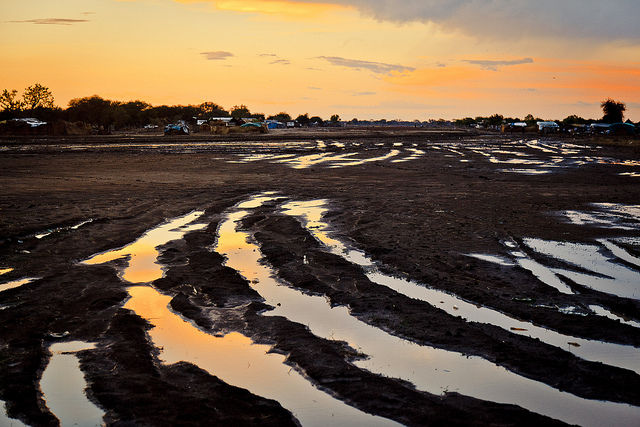
Attention to the situation in the disputed area of Abyei has been overshadowed by the worsening crisis to the northeast in the Nuba Mountains. In part, that may because of the agreement signed by Khartoum and Juba to remove their forces from the region and the U.N. Security Council’s authorization of a deployment of Ethiopian peacekeepers to secure the area. It seemed the situation was on the mend; with nearly 4,300 peacekeepers and police on their way to Abyei, surely the more than 100,000 displaced people would soon return home.
Nearly one month into UNISFA’s six-month mandate, U.S. and U.N. sources indicate about 300 to 500 peacekeepers have deployed. With the timeframe for full deployment uncertain, discrepancies have arisen over when the Sudan Armed Forces will be pulled back.
Speaking to news outlets this week, SAF spokesman Sawarmi Khaled Saad stated in no uncertain terms that the army will not redeploy until the full Ethiopian force is in place. “The Sudanese troops will withdraw from Abyei after the Ethiopians complete their deployment in the area," he said to AFP.
But that’s where significant disagreement arises. In New York last week, the head of U.N. peacekeeping Alain Le Roy said during a briefing, “all forces [in Abyei] were to withdraw by the first deployment of United Nations troops,” citing the language of the Addis Ababa agreement signed June 20 and the Security Council resolution. Overseeing the withdrawal would be one of the peacekeeping missions first tasks, he said.
However, the two agreements Le Roy mentioned are far less clear about the timeframe for SAF withdrawal than he suggested.
In Security Council Resolution 1990, the first order of UNISFA’s mandate is to “monitor and verify the redeployment of any Sudan Armed Forces, Sudan People’s Liberation Army or its successor, from the Abyei Area,” leaving the area demilitarized by all forces other than the peacekeepers and the police. There’s no mention of how this task corresponds to the timing of the deployment of Ethiopian forces.
The Temporary Arrangements deal signed by Khartoum and Juba in Addis Ababa on June 20 lays out plans for the redeployment of Sudanese military forces “immediately consequent on the deployment of an Interim Security Force for Abyei composed of Ethiopian troops.” The point is adequately vague to make a case for SAF pullout after the full deployment of the peacekeeping mission.
And when that will be is an open question.
A spokesman for the Ethiopian foreign ministry, quoted by the state-run SUNA news agency, recently suggested that the full force is already in-country, but a political officer with the U.N. peacekeeping department in New York contradicted this ambitious assessment. At most nearly 600 soldiers are currently in Abyei, with plans to have 1,600 in place by the end of July. “The existing U.N. sites can only accommodate that many. For the rest we have to establish new sites, which will take time,” he wrote in an email to Enough.
His boss, Le Roy, cautioned that the full deployment could take months. Logistical concerns alone – not to mention political ones – will “require full cooperation by both Governments in order to fully operationalize the Mission before 2012,” Le Roy said last week. If those anticipated obstacles – washed out roads, inadequate housing – come to pass, the mission could spend its first six-month mandate just prepping and beginning to deploy.
As SAF makes clear it will use the delay to dig in its heels, civilians displaced from Abyei have said repeatedly they will not return home so long as SAF maintains its presence. As recently as two weeks ago, an internal U.N. report indicated that the situation in Abyei town remained “volatile and unpredictable.” Sudanese soldiers continued to burn tukuls and carry out random shootings.
As long as the situation on the ground remains skewed in the NCP's favor, political negotiations will continue to be impossible between the SPLM and the NCP. If the SAF are allowed to withdraw according to their own timeline, the international community will be complicit in allowing a final solution to the region to once again be kicked down the road.
The Security Council resolution calls on the Secretary General to provide a status update to the council within 30 days of signing, which falls next week.
Photo: Heavy rains on the airstrip in Agok (Enough/Tim Freccia)

